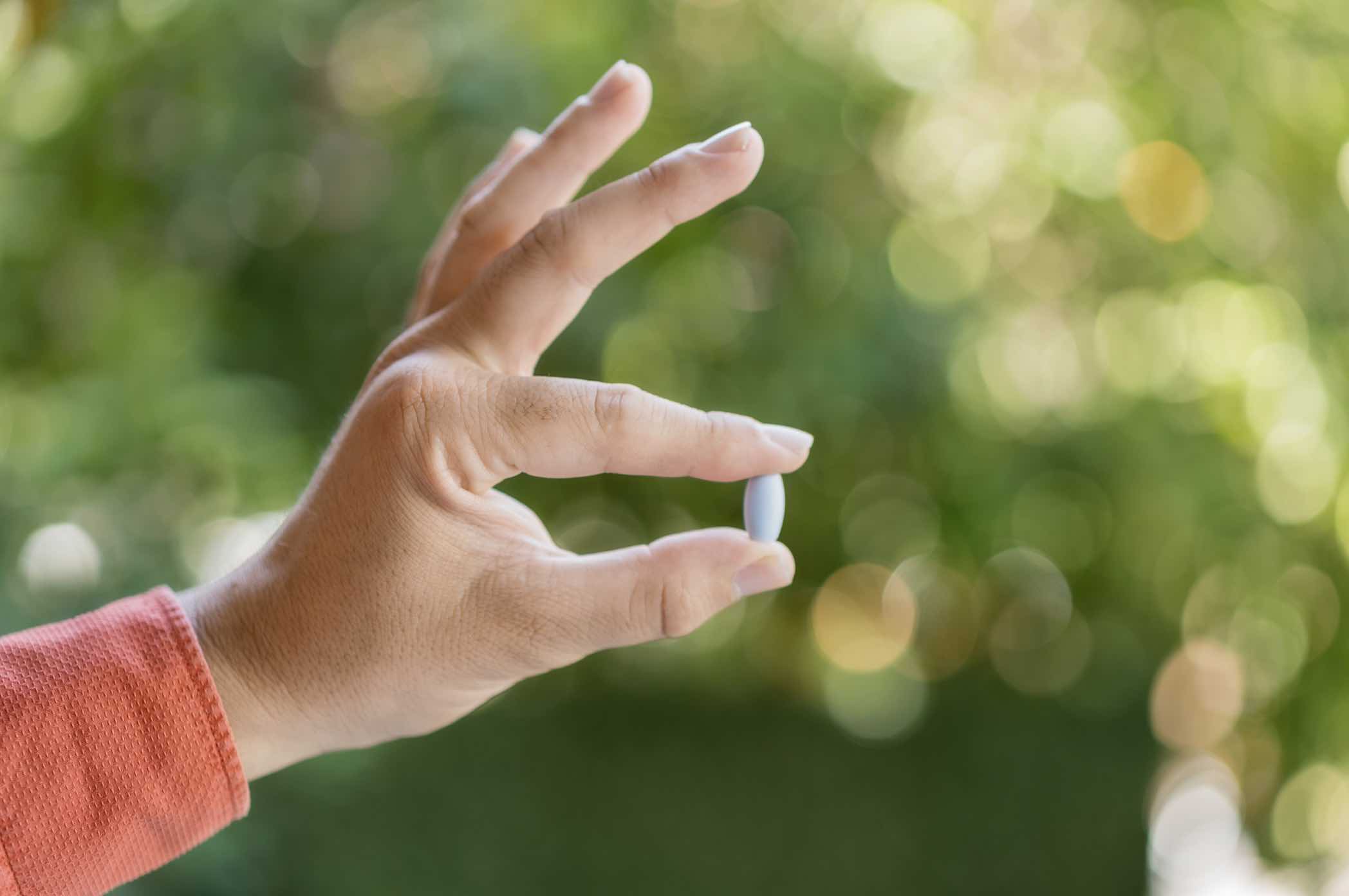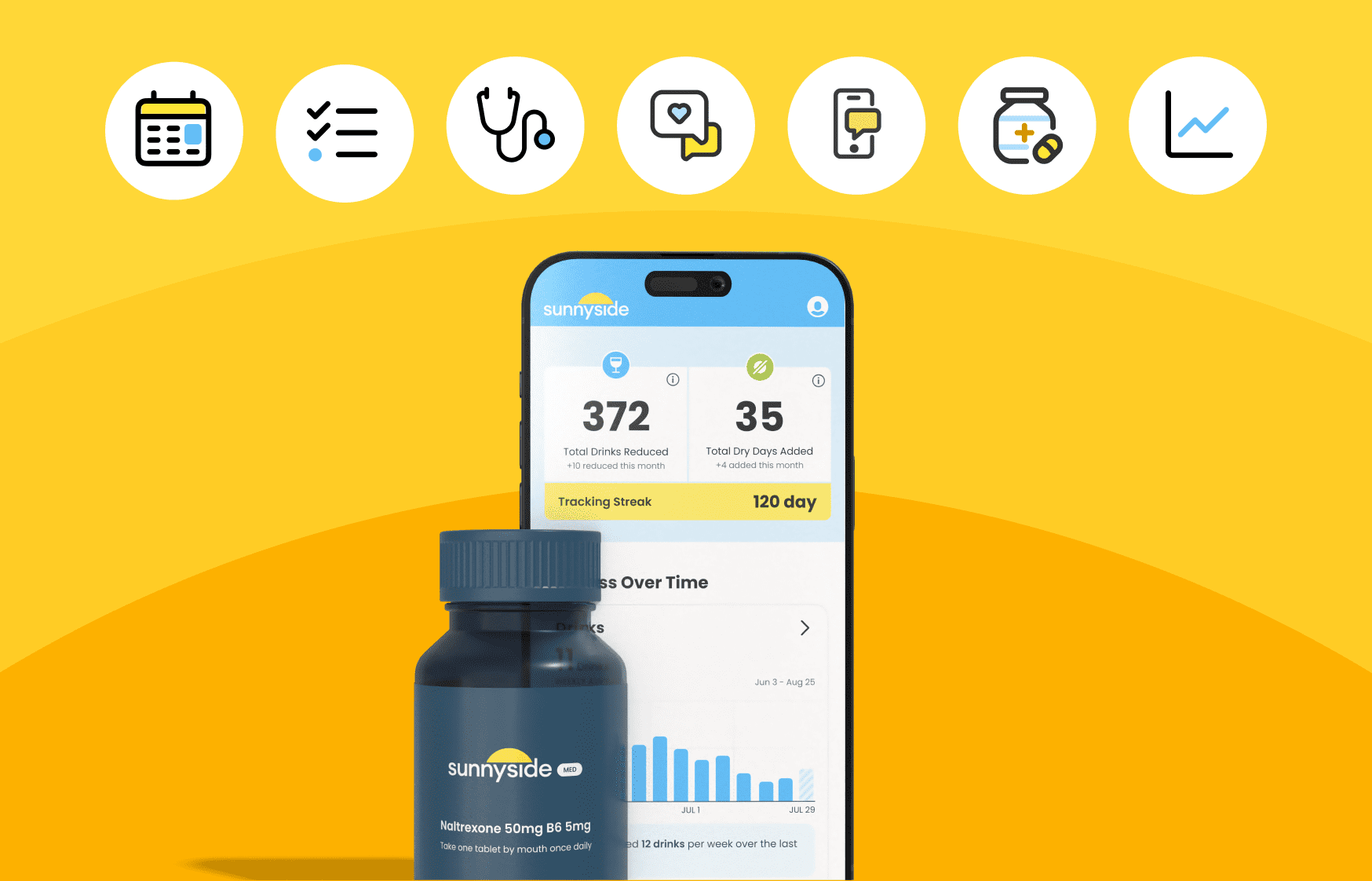Last Updated on May 30, 2023
Ever stopped to wonder how your kidneys are doing? Unless you’ve felt a strange pain in your stomach or watched your ankles swell up — probably not.
But those overlooked organs are the unsung heroes of your body — especially if you drink. They work day and night to filter waste and balance your fluids and energy levels.
And whether it’s a night of binge drinking, chronic heavy use, or that evening glass of wine, alcohol affects your kidneys.
Read on to find out how alcohol affects them and what to do to keep them healthy, without sacrificing your social life or workday wind-down.
Try mindful drinking with SunnysideWhat Exactly Do the Kidneys Do?
Your kidneys are a powerhouse organ that play a role in countless bodily functions. These are just five of their main functions, which naturally affect many other areas of the body.
1. Remove Waste
Kidneys are gatekeepers for clean blood. They filter out waste and excess fluid, then excrete it from your body as urine.
2. Regulate Blood Pressure
They help maintain that crucial balance between electrolytes, such as sodium, potassium, and phosphorus — minerals essential for muscle and nerve function, as well as fluid balance.
3. Maintain Fluid and Acid-Base Balance
Kidneys remove any excess acid or base to maintain your pH level in a healthy range. They’re also always working to keep a proper balance of fluids, adjusting the amount of urine produced in response to your intake, temperature, movement, medication, etc.
3. Produce Red Blood Cells
The kidneys produce a hormone called erythropoietin that stimulates the production of red blood cells. These cells deliver oxygen to your tissues and bones to provide you with energy.
4. Activate Vitamin D and Maintain Bone Health
Calcium and phosphorus levels are regulated by the kidneys, and these minerals make up the building blocks of bones. Vitamin D is also activated to help the body absorb more calcium for bone mineralization.
How Does Alcohol Affect Kidneys?
Your kidneys work continuously to keep your body in balance. They filter approximately 150 quarts of blood per day, so around one to two quarts of urine every day. And when you add alcohol to the mix, things get a lot more complicated.
Moderate Drinking
In light to moderate amounts, alcohol usually isn’t harmful to the kidneys. However, alcohol can make your kidneys work harder to filter out the excess fluids and waste products. That can lead to dehydration and electrolyte imbalances, which can put a strain on your kidneys over time. If you feel any kidney pain after drinking alcohol, it’s a sign that even moderate drinking might be too much.
Effects of Heavy Drinking
Chronic drinking puts more of a strain on the kidneys to regularly manage the filtration of alcohol, which it views as a toxic substance. While light and moderate drinking is usually manageable, heavy drinking can lead to:
- Acute Kidney Injury (AKI) — a sudden (but often reversible) loss of kidney function from excessive consumption, such as binge drinking.
- Nephropathy and chronic kidney disease — inflammation and scarring of the kidney’s filtering units leading to kidney failure.
- Bone loss or osteoporosis — due to an imbalance in calcium and phosphorus levels.
- High blood pressure — alcohol disrupts electrolyte balance and releases adrenaline and noradrenaline, which increases blood pressure.
- Liver disease — accumulation of waste due to the liver’s inability to filter toxins can overwhelm the kidneys.
- Diabetes — alcohol can exacerbate the effects of diabetes by increasing blood sugar levels and causing dehydration, further stressing the kidneys.
How to Keep Your Kidneys Healthy
Whether you’re drinking moderately or heavily, there are still steps you can take to improve your alcohol and kidney health.
Steps To Take After Binge Drinking
If you’ve had a night of heavy drinking, it’s essential to give your kidneys time to heal. Drinking plenty of water and electrolyte-rich fluids can help flush out the toxins and rehydrate your body. Don’t forget about sleeping lots, resting, and avoiding alcohol for a few days to let your kidneys fully recover.
It’s also helpful to eat healthily to get nutrients that support your kidneys to work at their best. That means you’ll want to avoid processed and salty foods that create more work for them (the thing we all crave!). Instead, add a few more servings and fruits and veggies to your day, like berries, leafy greens, and garlic, and get some antioxidant-rich olive oil in your cooking pans.
Long-Term Health: Practice Mindful Drinking
While it might take some time to develop mindful drinking habits, it’s worth it in the long run. You’ll become more aware of how much you’re consuming and how it affects you, emotionally and physically.
Here are some tips to get you started on your mindful drinking journey:
1. Pace yourself: Sip your drink slowly and put the glass down between every sip. Aim for no more than one drink every hour.
2. Alternate drinks with non-alcoholic beverages: This can help you stay hydrated and avoid overconsumption.
3. Avoid drinking on an empty stomach: Eating a meal or snack before and while drinking can help slow down alcohol absorption.
4. Choose lower alcohol content drinks: Stick to drinks like beer or wine, and avoid hard liquor.
5. Make a plan: Planning ahead can help you avoid triggers that lead to excessive drinking. Here are some strategies:
- Avoid triggering events or places.
- Choose water, soda, or other non-alcoholic beverages (whether that’s going completely alcohol-free or alternating).
- Decide ahead of time how many drinks you’ll have, and anything else you need to do that will make it easier to stick to your goals.
6. Track and observe with Sunnyside: Keeping track of your alcohol consumption can help you identify patterns and make changes to your drinking habits. Sunnyside lets you track your drinks, set goals, and monitor your overall health. It’s the only mindful drinking app on the market, and is free for the first 15 days.
7. Get support: If you’re struggling to cut back on alcohol or manage your drinking, getting support from others is incredibly helpful. Use the Sunnyside community, coaches, and any friends or family members that aren’t judgy. Finally, consider therapy and support groups to learn new coping tools.
Take Care of Yourself
On top of drinking mindfully, taking care of yourself is going to make all your organs happier, including your brain. Here are some self-care tips to keep in mind.
- Stress-reducing activities: Stress takes its toll, but luckily just a few minutes a day of calming activities can make a huge and long-lasting difference. Choose one thing that you can make part of your daily routine, like five minutes of meditation, yoga, or deep breathing exercises.
- Exercise: Regular exercise can improve kidney function and reduce the risk of alcohol and kidney disease (and many others). Aim for about 30 minutes of moderate exercise per day, which can mean a walk in the park after dinner or a YouTube dance or fitness video (which might also keep you too busy to drink or snack mindlessly in the evening!)
- Nutrition: Focus on foods that are low in sodium, phosphorus, and potassium with fruits, vegetables, lean proteins, and whole grains. In the end, that quick fast-food pick-up will have some not-so-quick effects on your long-term kidney function.
- Sleep: We all know that sleep reduces stress and boosts our mental health, so think about ways to make going to bed earlier easier. Try blue blockers, no-screen time, a new book to read before bed, or an alarm to remind you to start winding down for the night.
- Regular doctor check-ups: Check-ups can help detect kidney problems early on and prevent further problems.
Don’t Forget Self-Compassion and Small Wins
Making healthy changes to your lifestyle is rarely easy. It’s important to be kind to yourself and understand that it’s a process that takes time. Remember, self-criticism can trigger a downward cycle of shame and guilt, which might make your body crave a drink for relief.
So prepare for ups and downs along the way. and most importantly, celebrate your progress — no matter how small. In fact, the smaller the better! That’s how you slowly re-wire your brain.
And stay connected to a supportive community, whether it be with friends in person or online like with the Sunnyside app, where you can talk to people going through the same struggles. We all need someone to listen and understand us, especially in moments of change. If you track your goals and habits and tell others about them, you’re also more likely to complete them and notice those small wins. So try the free quiz and start your journey today.
Note: If you’re experiencing any alcohol and kidney disease symptoms, such as decreased urine output or swelling in your legs, ankles, or feet, it’s important to seek medical attention immediately.




